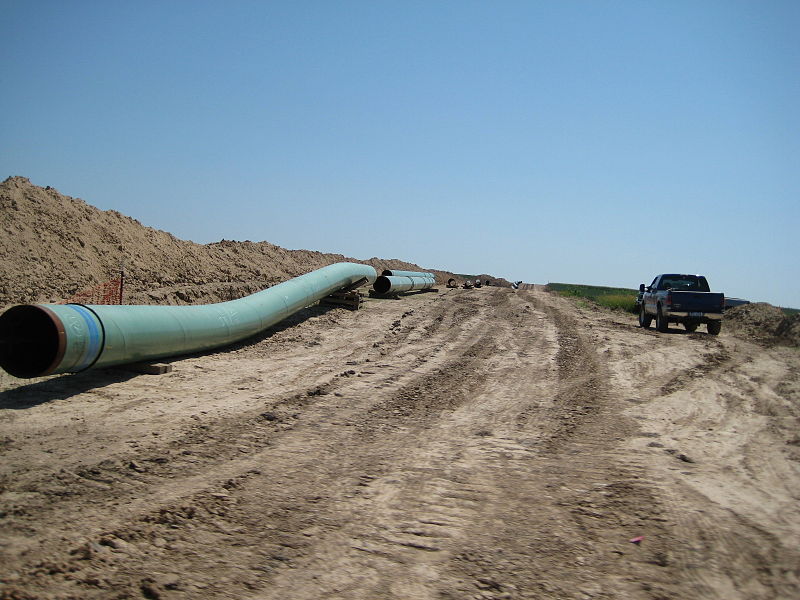Keystone pipeline controversy continues after suspension
Pipes for the keystone pipeline in 2009.
November 12, 2015
Despite President Barack Obama announcing last Friday his decision to suspend the Keystone Pipeline, the controversy over the topic has continued.
People who are pro-pipeline think the decision was based off of politics, while people against the pipeline believe the decision was based off of facts.
“It is a natural resource, it’s what we have to use,” said Katie Rutledge, president of the Conservation Club at Iowa State. “In the future we will have more sustainable ways with wind energy and solar energy, and I hope one day we will be completely dependent on it.”
Rutledge supports the pipeline because she believes it’s currently the safest way to transport oil. Rutledge said the main priority should be to become less dependent on foreign oil, and the pipeline is the only option.
Rutledge also said the pipeline would create jobs for maintenance and repairs in the long run.
If built, sensors would surround the pipeline. These sensors would monitor the oil flow and, if in danger of a leak, stop the flow of oil to the area until the problem is fixed.
The people against the pipeline are concerned with the leaks.
“Anytime there’s a pipe underground, it’s bound to leak,” said Colleen Cowan, junior in microbiology. “The land in Iowa is too valuable for oil spill all over it.”
Anytime oil is spilled, regardless of if it was spilled above ground from a train or under ground from a pipe leak, the environmental effects are astronomical.
This is why the people who live and use the land in the six states the pipeline would go through are worried.
Groups such as the Sierra Club, a grassroots campaign to move away from using oil, are celebrating the Keystone suspension.
However, supporters are still clinging to the hope that the election of a Republican president will allow the Keystone pipeline to be passed. If this is the case, the pipeline will have been a topic in Congress for nine years.

















